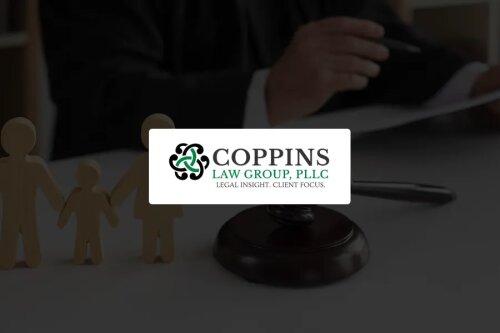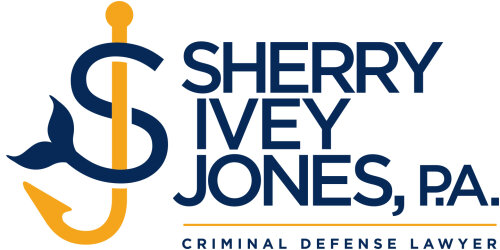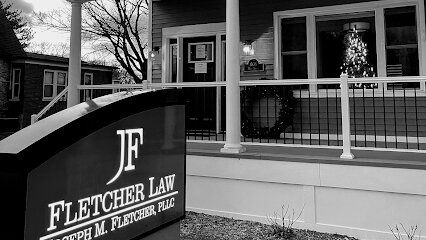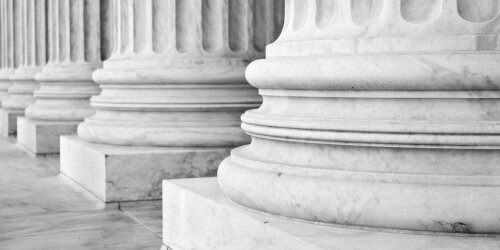Best Drunk Driving Lawyers in New York City
Share your needs with us, get contacted by law firms.
Free. Takes 2 min.
List of the best lawyers in New York City, United States
1. About Drunk Driving Law in New York City, United States
In New York, drunk driving cases are governed by state law rather than city law. A driver can be charged with Driving While Intoxicated (DWI) or Driving While Impaired by Alcohol (DWAI), depending on BAC levels and evidence of impairment. The penalties can include fines, license suspension, and potential jail time, with harsher penalties for higher BACs or repeat offenses.
New York applies an implied consent doctrine, meaning drivers must submit to chemical testing when stopped on suspicion of intoxication. Refusal can trigger an immediate license suspension under the Administrative License Suspension program. This structure means early decisions by a driver and their attorney can significantly affect outcomes.
For residents of New York City, local enforcement intensity can be high in certain neighborhoods and times, such as late nights in Manhattan, Brooklyn, and the Bronx. This makes obtaining timely legal counsel especially important if you face charges or a DMV action.
According to the National Highway Traffic Safety Administration, alcohol-impaired driving accounted for 28 percent of overall traffic fatalities in the United States in 2019.
2. Why You May Need a Lawyer
Facing a drunk driving charge in New York City can have immediate and long-term consequences. A lawyer can help you understand charges, protect your rights, and navigate the court and DMV processes.
- You were stopped after a minor traffic violation and charged with DWI in Manhattan or Queens, and you believe the stop was unlawful or the arrest details are unclear.
- You are under 21 and charged with DWAI or a DWI with any detectable amount of alcohol, triggering New York’s zero tolerance policy for underage drivers.
- You have a child passenger and are charged with DWI, which could invoke Leandra’s Law and ignition interlock requirements.
- You refused a breath test or blood test and face an Administrative License Suspension, risking an immediate license loss without a DMV hearing.
- You were involved in a NYC accident and face DWI or DWAI alongside potential weapons, injury, or property damage charges.
- You have prior DWI convictions or a prior DWAI that could elevate the offense to a higher level and potentially qualify for more serious penalties.
3. Local Laws Overview
New York City residents are subject to several key statutes and regulations governing drunk driving. Below are two to three important concepts and statutes to know by name.
- Vehicle and Traffic Law (VTL) § 1192 - This section covers Driving While Intoxicated (DWI) and Driving While Impaired by Alcohol (DWAI). It also distinguishes between per se BAC limits and impairment-based charges.
- Vehicle and Traffic Law (VTL) § 1192.4 - DWAI- drugs, including impairment from illegal substances or prescription medications, in addition to alcohol impairment.
- Leandra’s Law - A New York law enacted to strengthen penalties and add ignition interlock requirements when a DWI offender has a child in the vehicle, with the goal of preventing repeat offenses and ensuring child safety.
In addition to these statutes, New York maintains an Implied Consent Law requiring chemical testing during traffic stops for suspected intoxication, with an Administrative License Suspension (ALS) for testing refusals or failures.
New York’s Implied Consent Law requires drivers to submit to chemical testing after a lawful stop; refusal can trigger an ALS license suspension.
Source: NYS Department of Motor Vehicles on Implied Consent
Leandra’s Law extends ignition interlock requirements to certain DWI offenses involving a minor in the vehicle, and NY agencies publish guidance on interlock eligibility and installation.
Source: NYS DMV on Ignition Interlock
4. Frequently Asked Questions
What is the difference between DWI and DWAI in New York?
DWI is driving while intoxicated with a higher level of impairment or BAC, typically 0.08 percent or higher. DWAI covers impairment at lower BAC ranges or by drugs without proof of intoxication.
How do I know if I need a lawyer for a DWI or DWAI arrest?
Lawyers are often essential to review stop legality, challenge the accuracy of tests, and negotiate charges or penalties. NYC cases can involve complex DMV procedures as well as court appearances.
What is the typical timeline from arrest to resolution in NYC DWI cases?
Arrests may lead to DMV hearings within 15 days, followed by court dates that can extend weeks to months depending on the case complexity and court backlog.
How much does a DWI attorney cost in New York City?
Legal fees vary by experience and case complexity. A first-offense case may range from a few thousand dollars to well over ten thousand for felony or high-stakes matters, depending on the attorney and services.
Do I need to appear in court if I am charged with DWI in NYC?
Yes, most DWI cases require court appearances unless a lawyer arranges a plea or trial date. Your presence may be required for certain hearings.
Can I challenge the breath or blood test results in a NYC DWI case?
Yes. An attorney can examine calibration records, tester qualifications, and chain-of-custody issues to challenge the reliability of the results.
What is Leandra’s Law and how might it affect me?
Leandra’s Law requires ignition interlock devices in certain DWI scenarios involving a minor in the vehicle. This can affect supervision conditions and future driving privileges.
Do I need an ignition interlock device after a DWI conviction in NYC?
Interlock may be required depending on the offense, presence of a minor, and court or DMV orders. An attorney can determine applicable requirements and timelines.
What is the difference between a DMV hearing and a criminal trial?
A DMV hearing addresses license suspension and driving privileges. A criminal trial decides guilt or innocence on the charges themselves.
Should I plead guilty or go to trial for a DWI in NYC?
That decision depends on the evidence, possible penalties, and the strength of your defense. A lawyer can help assess risks and options.
Is it possible to reduce a DWI charge to a lesser offense?
In some cases, a lawyer may negotiate a reduction to a DWAI or other lesser charge based on facts and testing results.
What happens if I am charged with DWI near a school zone or during holidays in NYC?
Enhanced penalties can apply for school zone violations or holiday periods, and sentencing may be more severe with aggravating factors.
5. Additional Resources
- New York State Department of Motor Vehicles (NY DMV) - Official guidance on DWI, DWAI, implied consent, and ignition interlock programs. https://dmv.ny.gov
- New York State Senate - Statutory provisions for Vehicle and Traffic Law related to DWI and related penalties. https://www.nysenate.gov/legislation/laws/VTL/1192
- National Highway Traffic Safety Administration (NHTSA) - Federal data and guidance on drunk driving and prevention programs. https://www.nhtsa.gov/road-safety/drunk-driving
6. Next Steps
- Immediately contact a New York City drunk driving attorney to discuss your arrest and potential defenses within 15 days of an arrest to preserve DMV hearing options.
- Gather all documents related to the stop and arrest, including the police report, arrest citation, breath or blood test results, and any video footage.
- Ask your attorney to review the stop legality, field sobriety tests, and chain-of-custody for specimens to evaluate suppression or dismissal possibilities.
- Request a DMV hearing if you face an ALS suspension, and prepare to present evidence or witness testimony at the hearing.
- Discuss potential plea options and trial strategy with your attorney, including possible reductions to DWAI if applicable.
- Consider ignition interlock requirements and timelines if Leandra’s Law or similar conditions apply to your case.
- Develop a plan for court dates, required appearances, and compliance conditions to minimize driving disruption during the process.
Lawzana helps you find the best lawyers and law firms in New York City through a curated and pre-screened list of qualified legal professionals. Our platform offers rankings and detailed profiles of attorneys and law firms, allowing you to compare based on practice areas, including Drunk Driving, experience, and client feedback.
Each profile includes a description of the firm's areas of practice, client reviews, team members and partners, year of establishment, spoken languages, office locations, contact information, social media presence, and any published articles or resources. Most firms on our platform speak English and are experienced in both local and international legal matters.
Get a quote from top-rated law firms in New York City, United States — quickly, securely, and without unnecessary hassle.
Disclaimer:
The information provided on this page is for general informational purposes only and does not constitute legal advice. While we strive to ensure the accuracy and relevance of the content, legal information may change over time, and interpretations of the law can vary. You should always consult with a qualified legal professional for advice specific to your situation.
We disclaim all liability for actions taken or not taken based on the content of this page. If you believe any information is incorrect or outdated, please contact us, and we will review and update it where appropriate.

















